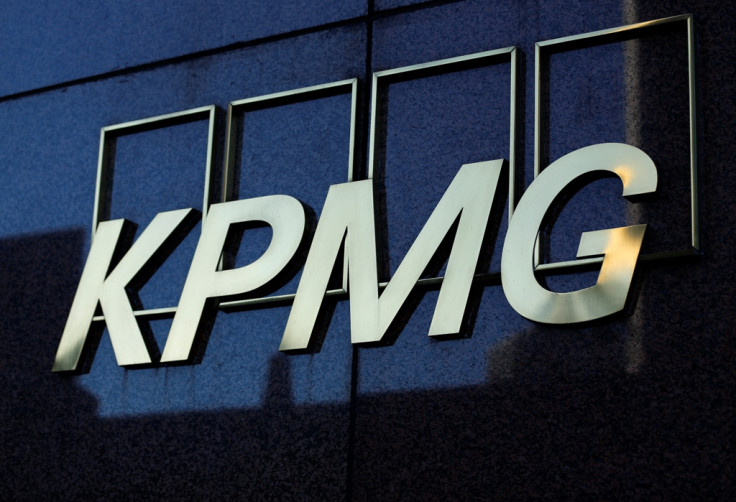Global companies snared in South Africa's corruption scandal
The fiasco has weakened the country's president and engulfed major brands such as McKinsey and KPMG.
South Africa's biggest corruption case since the end of apartheid has entangled not only the president and ruling party but also some major international companies, including US firm McKinsey and KPMG.
The scandal has weakened the ruling African National Congress, which meets this week to choose a new party leader who likely will become the country's next president in 2019.
The web of allegations that has threatened to take down President Jacob Zuma and briefly sent the country into recession this year includes illicit dealings with state-owned companies and other multinational firms, including German software giant SAP and British public relations company Bell Pottinger.
The sprawling scandal centers on Zuma's close associates, the Gupta family of Indian immigrant businessmen, who are under investigation by a parliamentary committee for influencing Cabinet appointments and leveraging their friendship with the president to land government contracts worth hundreds of millions of dollars.
The extent of the Guptas' interests were revealed in thousands of emails apparently leaked from a Gupta company server and verified by a team of South African investigative journalists.
One allegation is that the Guptas raided a fund for rural dairies to pay $2m (£1.5m) for a lavish wedding. Another, detailed by South Africa's independent ombudsperson in a 2016 report, is that Ajay Gupta offered the job of finance minister and $45m to Mcebisi Jonas, who has testified that he refused.
In a rare response to questions, Atul Gupta told The Associated Press that the allegations against his family are "nonsense" and part of a "twisted narrative being peddled by powerful forces with powerful vested interests."
Despite mounting evidence, there have been no arrests or charges. The head of the state prosecuting authority, the police and an elite crime intelligence unit called the Hawks were appointed by Zuma and are unlikely to take action against the president.
Frustrated, civil society groups and the main opposition party, the Democratic Alliance, have pressed for action outside South Africa, which has been damaging for international firms that did business with the Gupta family.
British authorities are looking into whether British banks may have inadvertently acted as conduits for money linked to the Guptas.
Bell Pottinger, once Britain's largest public relations consultancy, was revealed to be running a racially inflammatory campaign in South Africa for the Guptas' company, Oakbay Investments. Bell Pottinger was expelled from the British professional body and lost so many clients that it went into bankruptcy in September.

International auditing company KPMG produced audits for companies owned by the Guptas "that fell considerably short of KPMG's standards," according to the company's internal report. The CEO and seven other top executives of KPMG's South Africa office resigned and several big South African clients pulled their business.
SAP admitted it paid kickbacks of 90m rand (£4.93m) to a Gupta-owned company to win government contracts. Because SAP is listed on the New York Stock Exchange, the company reported its South African dealings to the Securities and Exchange Commission and Department of Justice.
Management consultancy McKinsey was found by its own investigation to have committed "errors of judgement and process" in its contracts with South Africa's power utility. Two of South Africa's biggest banks have ended their contracts with the firm.
And the non-profit Corruption Watch said it is preparing to ask the US Department of Justice to investigate McKinsey's work with Eskom for violations of the Foreign Corrupt Practices Act.
Brothers Atul, Ajay and Rajesh Gupta, who moved from India beginning in 1993, rose in prominence as South Africa transitioned from apartheid to democracy and a new political order took power. They built a computer hardware business into a conglomerate with stakes in media, mining and technology, relying heavily on contracts with state-owned companies.
Atul Gupta was ranked the seventh-richest South African in 2016 with personal wealth estimated at $735m, based on the disclosed holdings of companies on the Johannesburg Stock Exchange.
The Guptas deny that state contracts are a main part of their operations. "We have been successful because we entered an uncompetitive economy 20 years ago and were able to undercut the competition," Atul Gupta told AP.

Running companies employing tens of thousands of people, "we of course came into contact regularly with politicians" including Zuma, he said in an email.
The Guptas became Zuma's "kitchen cabinet" operating from their sprawling Johannesburg compound, said Ivor Chipkin, executive director of the Public Affairs Research Institute that studies South Africa's state institutions.
He said the family has played an important role in funding political battles within the ruling ANC, which has become increasingly divided over Zuma's leadership.
South Africa's business community has abandoned the Guptas, whose company was delisted from the stock exchange in July. All of South Africa's big banks have closed accounts linked to the family's holding company and its subsidiaries. Now the Guptas are fighting in court to keep their accounts in the South African unit of India's Bank of Baroda. If they lose, it will be difficult for them to conduct business in South Africa.
The civic organisation Save South Africa is calling for other global firms that had business dealings with the Guptas to come clean.
"The public storm is not over," it said. "Multinationals must realise that while South Africa is open for business, it is not open for business that tears apart our political and social fabric, loots our national assets and undermines the rule of law."



















